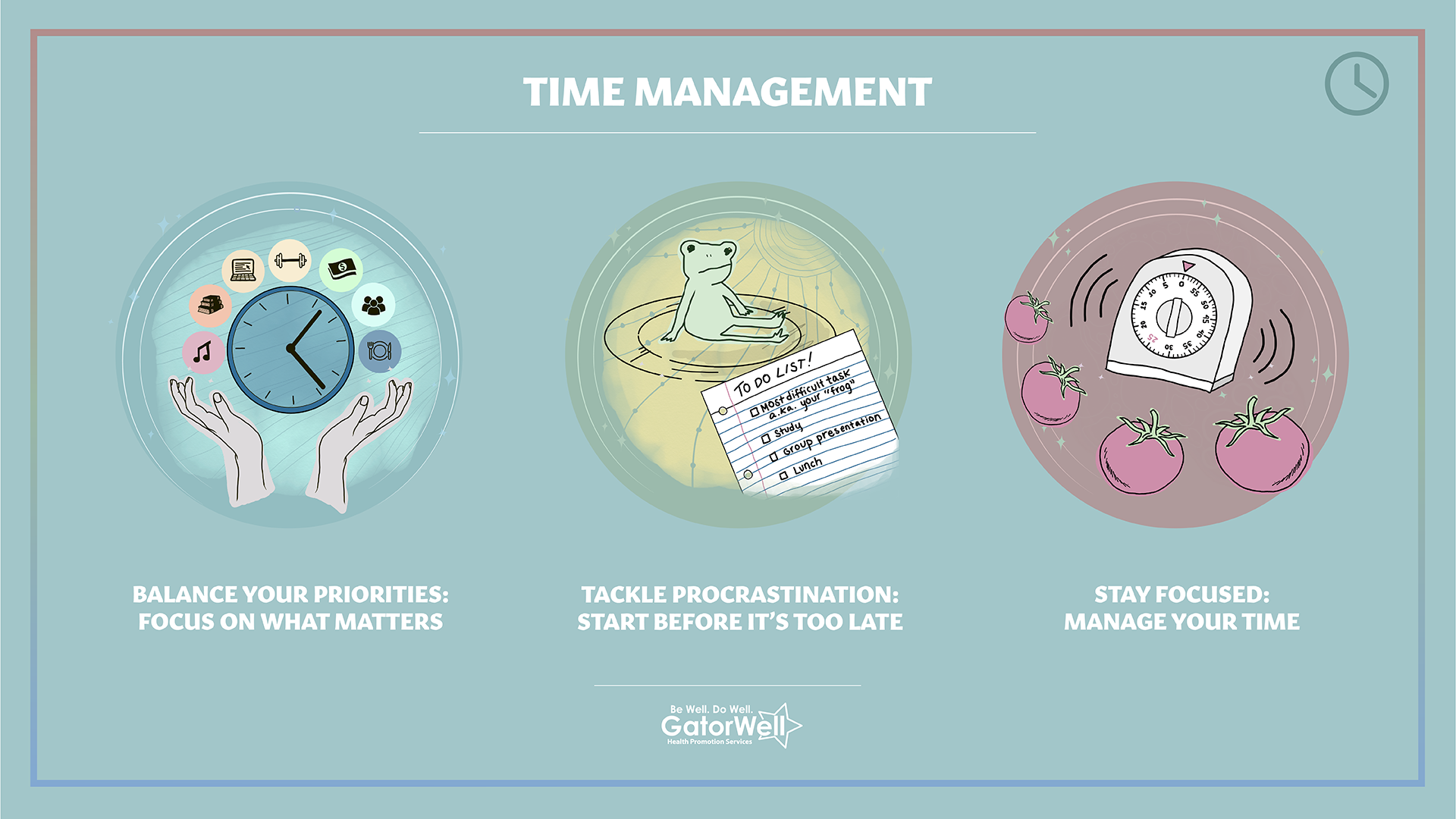TIME MANAGEMENT

Working on our wellbeing is a lifelong journey. There are going to be ups and downs throughout our lives. College can have multiple transitions and challenges that may impact our well-being. There will be times when we are not doing well, and that is ok. It’s in those times that we want to utilize the resources that are available to us to support our wellbeing. Luckily, at the University of Florida we have numerous resources available to support student well-being.
We want to make sure you know about all the resources that are available to you. Below are some resources that you can utilize during your time at UF. They are categorized based on what main dimension of wellbeing they fall under. Feel free to check them out and if you still have questions contact GatorWell.
Balance Your Priorities: Focus on What Matters
Prioritize your time: Create a plan or schedule of everything you wish to accomplish
To help you balance that schedule with all the things you need and want to do:
- Create a schedule according to what is important and urgent to you.
- Outlining where you should focus your time and decrease feelings of being overwhelmed.
- Prioritizing can help create a schedule balanced with school, extracurriculars, family, friends, working out, hobbies, etc.
Tackle Procrastination: Start Before It’s Too Late
Procrastination is the nemesis of time management. Overall, leading to inefficient use of time and taking away from the things you should be doing. Understanding the influence of procrastination can help identify solutions to decrease the urge to procrastinate.
Ask yourself, "Why do I procrastinate?"
Stay Focused: Manage Your Time
It is important to stay focused and complete the task you are working on. As you lose focus and begin multitasking, it can lead to decreased productivity, increased stress, and longer hours spent studying.
